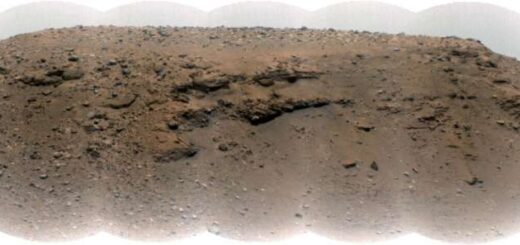10 Ways Space Is Trying to Kill You

In the Hollywood thriller “Gravity,” screenwriters concocted a frightening space scenario. Two NASA astronauts on a spacewalk, portrayed by Sandra Bullock and George Clooney, find themselves stranded in the emptiness of space, after their spacecraft is wrecked by debris from a satellite destroyed by a missile.
While that particular dilemma was fictional, it resonated powerfully with movie audiences, because those of us who grew up watching the triumphs and tragedies of the Space Age know that being an astronaut is dangerous work. We’ve heard about the deaths of the three Apollo astronauts during a launching pad test exercise in 1967, the six who lost their lives when the space shuttle Challenger disintegrated 73 seconds after liftoff in 1986, and the seven who were killed when the Columbia shuttle broke up during re-entry in 2003 [source: Airsafe.com].
But while leaving Earth and returning to it are both risky business, the time that astronauts spend in the airless, cold and highly irradiated void of space is fraught with ever-present lethal peril, too. Space is so dangerous, in fact, that it’s amazing that only three humans—a trio of Soviet cosmonauts on a 1971 mission—have actually perished there. Here are 10 of the ways in which the cosmos is unforgiving of our inherent frailties.
Without atmospheric pressure (or a space suit), water in your soft tissues would vaporize and your body would swell up grossly. LONELY_/ISTOCK/THINKSTOCK
If an astronaut is exposed to a space vacuum without protection, other nasty stuff would happen, too. Without atmospheric pressure to balance things out, the unfortunate space traveler’s final breath would expand in his or her lungs, tearing the delicate gas-exchange tissues that line them. At the same time, water in the person’s soft tissues would vaporize, causing the body to swell up grossly, though the skin would provide enough resistance to keep him or her from bursting like an overinflated balloon. Bubbles would form in the veins, blocking blood flow, and the astronaut’s bowels, bladder and stomach would expel their contents. (This was what happened to dogs exposed to near vacuum as part of a study. If the time they spent was less than 90 seconds, most of the effects went away once the air was repressurized; more than that and they usually died) [source: Gosline].
If that’s not bad enough, a condition called ebullism can set in, in which the boiling point of bodily fluids would decrease below the body’s normal temperature, causing the astronaut’s saliva to boil on his or her tongue [source: NASA].



 Creators of mankind
Creators of mankind Description of “Tall white aliens”
Description of “Tall white aliens” Where they came from?
Where they came from? About hostile civilizations
About hostile civilizations The war for the Earth
The war for the Earth “Tall white aliens” about eternal life
“Tall white aliens” about eternal life Video: “Nordic aliens”
Video: “Nordic aliens” Aliens
Aliens Alien encounters
Alien encounters The aliens base
The aliens base UFO
UFO Technology UFO
Technology UFO Underground civilization
Underground civilization Ancient alien artifacts
Ancient alien artifacts Military and UFO
Military and UFO Mysteries and hypotheses
Mysteries and hypotheses Scientific facts
Scientific facts


















